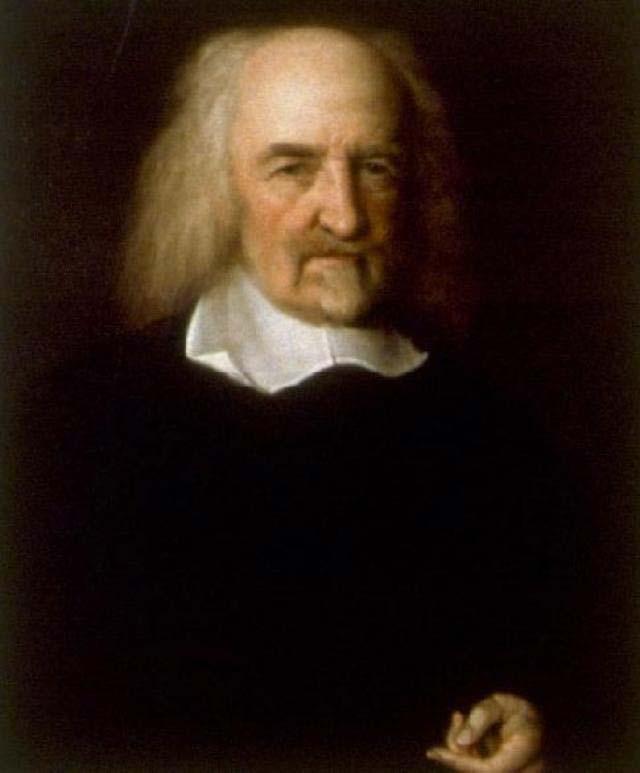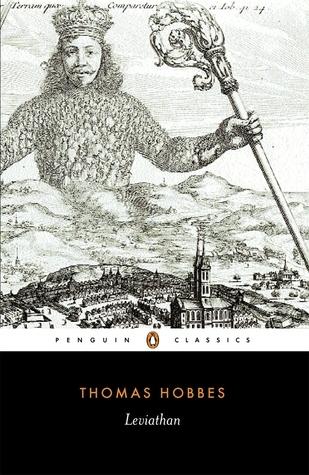Thomas Hobbes
Thomas Hobbes was a seventeenth-century political theorist and philosopher who created the foundational framework of this project,1 allowing the preceding philosophers to establish their philosophies.
The beginning of the early modern era was dominated by the elite and, thus, many of the political theories prior to Hobbes were homogenous. They believed in the divine right of kings which state that the sovereign—whether a single, absolute monarch or a group of absolute oligarchs—derived power from God, justifying his absolute power.2 Hobbes did not agree with this justification and derived absolutism from a different source.
In Hobbes' Leviathan, he argued that all people are completely free in the state of nature but, because the state of nature is so brutish, the people aim to leave it. Thus, they give all the power and freedoms they have to the sovereign in exchange for protection.3 This, in turn, derives absolutism from the consent of the governed.
"I authorize and give up my right of governing myself, to this man, or to this assembly of men, on this condition, that thou give up thy right to him, and authorize all his actions in like manner.”4
While Hobbes' political theory centers on an authoritarian state in which the "Leviathan" has all the power, his choice to justify that power through the consent of the governed established an important foundation for political philosophers that followed him. Western political thought has diverged to support democracy—something that Hobbes would be greatly against—his choice to justify sovereign power as emerging from the consent of the people started a shift toward people-centered political theory.
1. Britannica. “Thomas Hobbes: Leviathan, Social Contract, Enlightenment.” Accessed April 08, 2024. https://www.britannica.com/biography/Thomas-Hobbes/Political-philosophy
2. Teeter, Louis. “The Dramatic Use of Hobbes’s Political Ideas.” ELH 3, no. 2 (1936): 141. https://doi.org/10.2307/2871711.
3. Hobbes, Thomas. Leviathan. Edited by Christopher Brooke. Penguin Books Ltd, 2017, 379.
4. ibid, 379.

